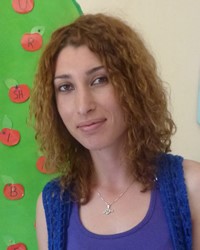Egyptian, Balkan in Albania

Photo Source:
The Advocacy Project - Flickr
Creative Commons
|
Send Joshua Project a map of this people group.
|
| People Name: | Egyptian, Balkan |
| Country: | Albania |
| 10/40 Window: | Yes |
| Population: | 2,800 |
| World Population: | 19,300 |
| Primary Language: | Albanian, Tosk |
| Primary Religion: | Islam |
| Christian Adherents: | 4.00 % |
| Evangelicals: | 0.00 % |
| Scripture: | Complete Bible |
| Ministry Resources: | Yes |
| Jesus Film: | Yes |
| Audio Recordings: | Yes |
| People Cluster: | Albanian |
| Affinity Bloc: | Eurasian Peoples |
| Progress Level: |
|
Introduction / History
The Balkan Egyptians are descendants of the Egyptians who travelled to the Balkan Peninsula during the prosperity and glory of the Egyptian empire. During the iron revolution, at the time of the 19th Dynasty of Egypt, the Pharaohs Seth I (1294-1279BC) and Ramesses II (1279-1213BC) sent Egyptian slaves to bring iron from contemporary civilizations such as Anatolia, the Balkans, North of Apennine, Cyprus, and Peloponnese. As such, descendants of some of those Egyptian migrants are distributed across the states of the Balkan Peninsula including Albania.
To add credence to the migration of these Egyptians to the Balkans, there are many preserved temples of Isis and other Egyptian gods throughout the Balkans, with the most notable ones of the temples of Isis in Lihnidos (Ohrid) and Heraclea (Bitola), as well as others on Albanian territory in Apolonia and other regions.
Albania recognized the Balkan Egyptians as a state minority in 2017. However, their official position regards them as a group that do not have their own language and who are able to speak only the Albanian language. They also state that they have been integrated completely in the Albanian population and their only difference from the other Albanians is the color of their skin.
The present day Balkan Egyptians speak Albanian, and they also have the same culture and traditions as Albanians. They are spread all over Albania, even in the deepest villages. They make up the majority in the main cities of Shkoder, Berat, Elbasan, Tirana, Korce, Tepelene, Gjirokaster Delvine Fier Lezhe, Durres, and Pogradec.
What Are Their Lives Like?
Balkan Egyptians, who live in Albania, face hardship in their lives because of poverty and their usually large families. Egyptians work different jobs, particularly in smithery, agriculture and as musicians.
The Egyptian community in Albania is known by the state as a constitutional minority. For this the community has come up with national plans for their integration, but they believe that these plans are not applied right and with justice. They are organized into two different political parties and ten different organizations.
In Albania, the Balkan Egyptian community is fully integrated into Albanian society and culture, with a high educational and employment rate as well. Although they are fully integrated into Albanian culture, they still follow their regional traditions and customs. Marriages between Egyptians and Albanians are frequent.
Folk dances and singing occupy a special part in their lives. Most important events of their lives are associated with dance. They dance at the weddings, in other parties, and especially on popular meetings on occasion for various holidays.
There is no dedicated television or radio channels for these group of people since the government does not allow them for minorities.
What Are Their Beliefs?
The Balkan Egyptians are Sunni Muslims who believe that the supreme God, Allah, spoke through his Prophet, Mohammed, and taught mankind how to live a righteous life through the Koran and the Hadith. To live a righteous life, they are to utter the Shahada (a statement of faith), pray five times a day facing Mecca, fast from sunup to sundown during the month of Ramadan, give alms to the poor, and make a pilgrimage to Mecca if they have the means. Muslims are prohibited from drinking alcohol, eating pork, gambling, stealing, slandering, and making idols. They gather for corporate prayer on Friday afternoons at a mosque, their place of worship.
The two main holidays for Sunni Muslims are Eid al Fitr, the breaking of the monthly fast and Eid al Adha, the celebration of Abraham's willingness to sacrifice his son to Allah.
Sunni religious practices are staid and simple. They believe that Allah has pre-determined our fates; they minimize free will.
In most of the Muslim world, people depend on the spirit world for their daily needs since they regard Allah as too distant. Allah may determine their eternal salvation, but the spirits determine how well we live in our daily lives. For that reason, they must appease the spirits. They often use charms and amulets to help them with spiritual forces.
What Are Their Needs?
The Balkan Egyptians fight for their rights and identity due to the discrimination they face and not finding equal opportunities for work and education.
Prayer Points
Pray for the authority of Christ to bind hindering spiritual forces to lead Balkan Egyptians from darkness to light.
Pray for signs and wonders and for great breakthroughs with a rapid multiplication of disciples and house churches.
Pray for bold workers who are driven by the love of the Holy Spirit to go to them.
Pray for Balkan Egyptians to make disciples who will make other disciples.
Pray for Illyricum, a mission movement, that plants and establishes indigenous local healthy churches in Albania and for their ministry among the children and youth.